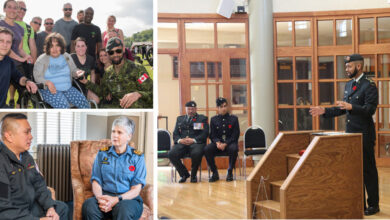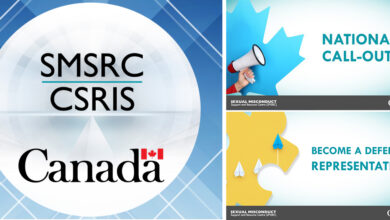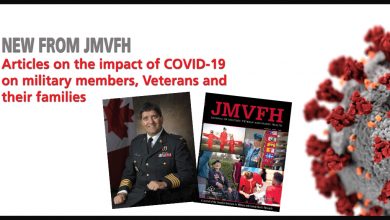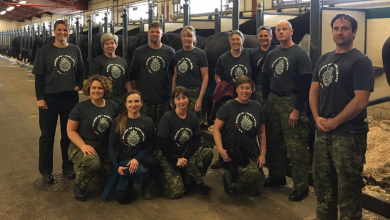Helpful Resources
Legion assisting Veterans and still-serving members with Veterans Affairs Claims
Instead of struggling with a set of daunting paperwork in order to receive benefits from Veterans Affairs Canada (VAC), veterans and still-serving members can team up with the Royal Canadian Legion for assistance. The Legion promises to look out for members every step of the way when submitting a claim.
The Royal Canadian Legion has been assisting veterans and military members since 1926 and deals with thousands of claims each year. In 2015 alone, the Legion dealt with 3,200 claims.
The Legion assists veterans and still-serving members free-of-charge.
Assistance with VAC forms is overseen by Director of Service Bureau, Ray McInnis, and his staff of professional Service Officers. McInnis and his staff look after everything from first application up to, and including, a Request for Reconsideration with the Veterans Review and Appeal Board.
“The staff is varied with its experience, and we share that experience to ensure we make it the best experience for the person submitting the claim,” said McInnis.
A veteran looking for assistance with their VAC forms can start the process by contacting the command representative in their province. The command representative will meet with the veteran or serving member and connect them with a Command Service Officer.
Since the Legion is legislated to assist veterans, they can assist former and current military members every step of the way. Individuals start out by signing a Legion claim form, so the Legion has permission to access health records. Once a claim is registered, VAC orders the service health record for the member and once it is in the system, the Legion can assess the health records and ensure the right diagnoses, that the member is claiming, appears. Once the diagnosis appears all a member has to do is link the diagnoses with their service.
“So, we’re a little ahead of the game there because we review the service health records first because we don’t want to give too many expectations to the member, just submitting the claim, without knowing if they actually have a condition,” said McInnis.
McInnis stresses, however, that a proper diagnosis needs to be noted in the service health records in order to receive benefits.
“If it isn’t there and the member is still saying there’s a problem, we’ll have them go back through the Canadian Forces Health Services to say ‘okay this is what I need in my files in order to submit a claim to VAC’,” explained McInnis.
The Legion keeps individuals informed throughout the process and guides them through the steps.
Once a claim has been adjudicated, and a work item appears in the system, the Legion will contact the veteran.
“At that time, what we will do once we get the work item, instead of waiting for the veteran to take another two weeks to get the letter from VAC, we will initiate a telephone call to let the veteran know, good or bad, what the decision is. If it is good, we will tell them exactly what is there. We do our own letter reemphasizing what VAC will put in their letter. If it’s an unfavourable decision, we tell the veteran what the way ahead is,” noted McInnis.
If the decision is unfavourable, next steps may include submitting missing information, missing evidence or even requesting a departmental review.
The Legion works closely with the Bureau of Pension Advocates and cooperates with them in case an entitlement review is necessary.
However, if a claim cannot go any further, the Legion honestly lets the member know.
“We don’t want to burden the system with hate claims; so, we try to be very upfront and honest with our deliberations back to the veterans,” stated McInnis.
McGinnis strongly recommends that veterans and transitioning members reach out to the Legion before starting out their claim, rather than coming to them midway.
”We’d rather take the claim from the start, that way we have control of it. Then we can follow it along the whole process. When we start doing piecemeal by printing off stuff yourself, it tends to not go in a very good way. Then we’re behind the eight-ball again. So, come to us. We will get the Legion claim form signed, we’ll register the claim, and we will take care of you from start to finish,” said McInnis.
In special cases, those who are end-of-life or severely ill, can have their applications expedited as a “red zone” case. A red zone case can take as little as seven to 21 days for a decision.
For the rest, though the process is not expedited, McInnis ensures that by going through the Legion the process will run smoother and applications submitted will be complete, ensuring results within a reasonable time frame.
“You have to remember we in this office all retired military personnel. So, we know the system, we know the words, we know secondary duties, we know what to look for in service health records,” said McInnis.
Learn more about the Royal Canadian Legion’s services and how to get in contact with a command representative by visiting their website.









